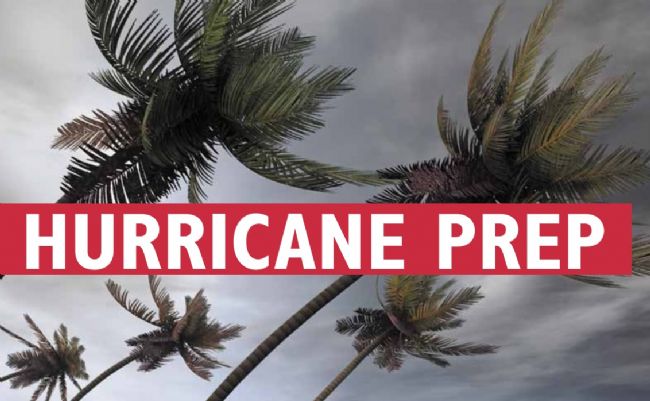
The Be Ready Alliance Coordinating for Emergencies (BRACE) and its partners know that the likelihood that you and your family will recover from a hurricane or other emergency tomorrow often depends on the planning and preparation done today. You should plan to survive on your own for at least three days. Think about the basics for survival - food, water, clean air and any lifesustaining items you require.
Get a kit: Consider the development of two emergency kits. In one kit put everything you will need to stay where you are and survive for several days. The other kit should be a lightweight, smaller version you can take with you if you have to leave your home.
Recommended basic emergency supplies include: water one gallon of water per person per day for at least three days for drinking and sanitation; food, at least a three-day supply of non-perishable food and a can opener if kit contains canned food; battery-powered or hand crank radio and a NOAA Weather Radio with tone alert and extra batteries for both; flashlight and extra batteries; first aid kit; whistle to signal for help; dust mask to help filter contaminated air and plastic sheeting and duct tape to shelter-in-place; moist towelettes, garbage bags and plastic ties for personal sanitation; wrench or pliers to turn off utilities; local maps; pet food, extra water and supplies for your pet or service animal.
Include medications and medical supplies: If you take medicine or use a medical treatment on a daily basis, be sure you have what you need on hand to make it on your own for at least a week. Florida statutes allow for the replacement of prescription medications at any time during a declared local state of emergency.
Additional items: If you use eyeglasses, hearing aids and hearing aid batteries, wheelchair batteries, or oxygen, be sure you always have extras in your home.
Include emergency documents: Include copies of important documents in your emergency supply kits such as family records, wills, power of attorney documents, deeds, social security numbers, credit card and bank information, and tax records. Make an emergency plan and write it down. The Florida Division of Emergency Management offers an online tool to help you develop your plan through its website: Courtesy of BRACE Seasonal Hurricane prep www.FLGetAPlan.com. Keep a copy of your plan in your emergency supply kits and a list of important information and contacts in your wallet.
Develop a family communications plan: Your family may not be together when disaster strikes, so plan how you will contact one another and review what you will do in different situations. It may be easier to make a long-distance phone call than to call across town, so plan an out-of-town contact.
Deciding to stay or go: Depending on the nature of the emergency, the first important decision is whether you stay or go. Monitor television or radio news reports for information or official instructions as they become available. If you're specifically told to evacuate or seek medical treatment, do so immediately.
Consider your pets: Keep in mind that what's best for you is typically what's best for your animals. If you must evacuate, take your pets with you, if possible. If you are going to a public shelter, it is important to understand very few are pet-friendly and able to accommodate animals in separate space from evacuees. Pre-registration of pets may be required. If you have a medical condition, check with your doctor or the health department about alternative sheltering options.
Evacuation: There may be conditions in which you will decide to leave, or there may be situations when you may be ordered to leave. Choose several destinations in different directions so you have options in an emergency.
Fire Safety: Plan two ways out of every room in case of fire. Secure or remove furniture and objects that may block your path.
Be Informed: It's important to stay informed about what might happen and know what types of emergencies are likely to affect our community.
View similar articles online in Council on Aging's quarterly magazine, Coming of Age.
2026 Council on Aging of West Florida
P.O. Box 17066
Pensacola, FL 32522
Phone: 850-432-1475
Homemaker and Companion AHCA Registration #4941
United Way Partner Agency
HIPAA Notice • Privacy Policy
Council on Aging of West Florida is compliant with the Better Business Bureau's Wise Giving Alliance Standards for Charity Accountability. Learn more at www.bbb.org.